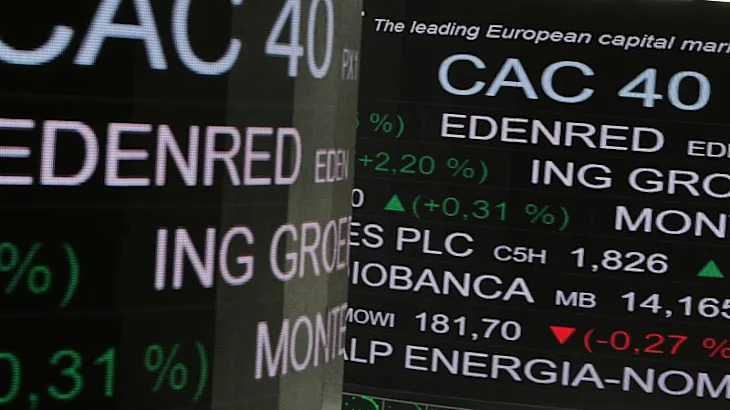
European markets eye historic rally following Trump’s tariff pause
European markets staged a historic rally in early morning trading on Thursday, tracking Wall Street’s euphoric surge after US President Donald Trump unexpectedly announced a 90-day pause on tariffs for countries that have not retaliated against US trade measures, excluding China.
The Euro Stoxx 50, which tracks blue-chip companies across the eurozone, jumped 8.2% to nearly 5,000 points, on pace for its strongest session since the onset of the pandemic in March 2020. The broader Euro Stoxx 600 rose 7.4%, while national indices across the continent saw similarly powerful gains.
Germany’s DAX rallied 8.5%, Italy’s FTSE MIB climbed 8.4%, France’s CAC 40 advanced 8.6%, and Spain’s Ibex 35 surged 8.3%, with all benchmarks poised to register their biggest one-day gains in over four years.
By 15:30 CEST, the key indexes lost some ground but remained in positive territory with most still up over 5%.
The rally followed a dramatic shift in US trade policy late on Wednesday, when President Trump lowered tariff rates — retaining a universal 10% 'reciprocal' levy for all non-retaliating nations, offering a three-month negotiation window. Meanwhile, tariffs on Chinese imports were raised to 125% in response to Beijing’s own recent retaliatory measures.
Related
“The current situation is not only chaotic, it’s crazy,” said Carsten Brzeski, global head of macro at ING.
“While this might bring some short-term relief for European exporters, the harm to confidence will last,” he added.
European Commission President Ursula von der Leyen called the move “an important step to stabilising the global economy”, reaffirming the EU’s commitment to “constructive talks with the US” and its broader aim of “achieving frictionless and mutually beneficial trade".
Gian Marco Salcioli, head of global market strategy at Intesa Sanpaolo, described the move as a textbook case of brinkmanship, a strategy involving a calculated escalation to force opposing parties into negotiation.
He pointed to stress in US Treasury markets as a key trigger for the White House’s shift in tone.
Rising yields, he said, had flashed red warnings in Washington, prompting a rethink of the current tariff escalation path.
Salcioli questioned whether a campaign of de-dollarisation was truly compatible with Trump’s "America First" vision, suggesting Wednesday’s announcement may have been the administration’s first meaningful concession to market pressure.